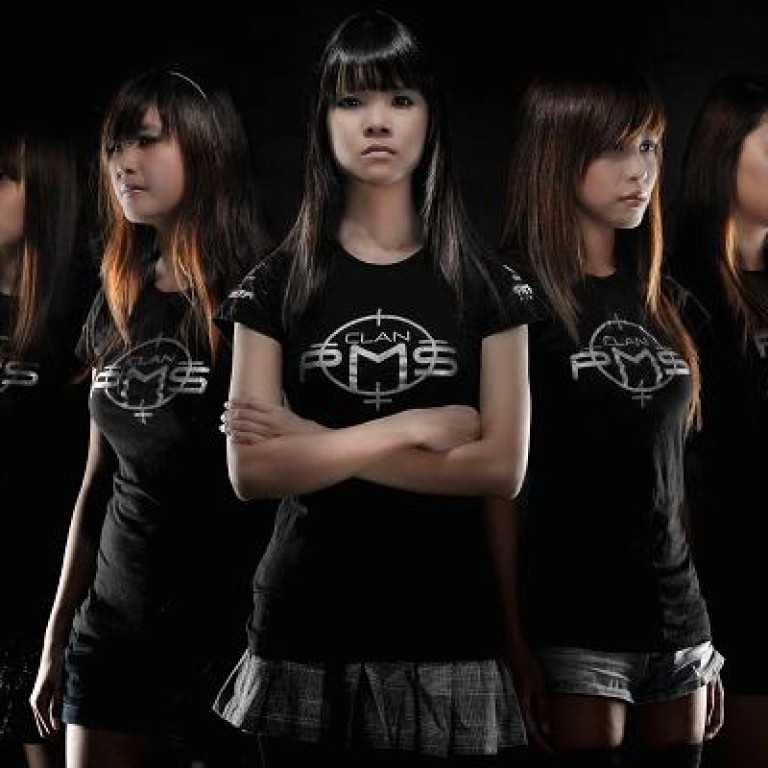
Singaporean girl-gamers turning their passion into a profession
'People are starting to see that it's a huge industry' say members of all-female game team, but they complain of a lack of support and funding for the sector back home
Navigating the world of gaming can take on a higher level of difficulty when you are female.
But a group of Singaporean girl-gamers, called Asterisk*, has lasted more than a decade, with some even turning their passion into a profession.
One of the first female gaming teams in Southeast Asia, the 25-member group has three competition teams, that play Heroes of the Storm, Counter-Strike: Global Offensive (CS: GO) and League of Legends (LOL), with members ranging in age from their teens to their early thirties.
Founder Tammy Tang, also known by her gaming alias "furryfish*," set up the group in 2005 to nurture female gaming.
Now, according to Tang and her team mates, there are many more girl-gamers, which is borne out by the statistics - according to the Entertainment Software Association in the US, currently 41 per cent of gamers are female.
And despite some high-profile allegations of cyber-bullying in the gaming sector - most recently around the departure of a female executive from Nintendo after she was subject to an online harassment campaign - Asterisk's members say they rarely faced pushback for being female gamers.
"People quite generally are mean, guys hurl insults at other guys too." says Tammy, while Asterisk's current group manager, Kimberlyn See a.k.a "kimchi*," quips, "Just ignore the trolls."
Although she's taken a step back from managing the group, Tammy is very active in the gaming industry, working as an Asia Pacific marketing event manager for Twitch, an online streaming platform for gamers that was acquired by Amazon in 2014.
Prior to that, she worked for Razer, a California based company that manufactures high-performance gaming equipment.
See, meanwhile, is the Asia accounts manager for Electronic Sports League (ESL), owned by Germany's Turtle Entertainment, which touts itself as the world's largest e-sports organization.
In fact, the girl-gamers' main gripe about gaming is not gender bias but the lack of support and funding for the sector in Singapore compared to the U.S. and Europe, where Kimberlyn says gaming events get a similar level of attention and cash to television productions.
The e-sports scene is slightly better in the Philippines, they say. This week the Manila Majors are underway for the third Defense of the Ancients championship, where gaming teams will battle for a share of a US$3 million prize pool.
And these prize pools could grow. SuperData forecasts total e-sports global revenue this year at US$892.8 million, with Asia leading the market. By 2018, the market is set to reach US$1.1 billion.
Meanwhile, Tang says she's having fun working in the industry.
"It's the right time to be where I am; there's a lot more e-sports, a lot more interest, alot more money," she says, adding that gaming is not just a marginalised hobby any more. "People are starting to see that it's a huge industry. There's a business aspect to it. It's not just playing games."

